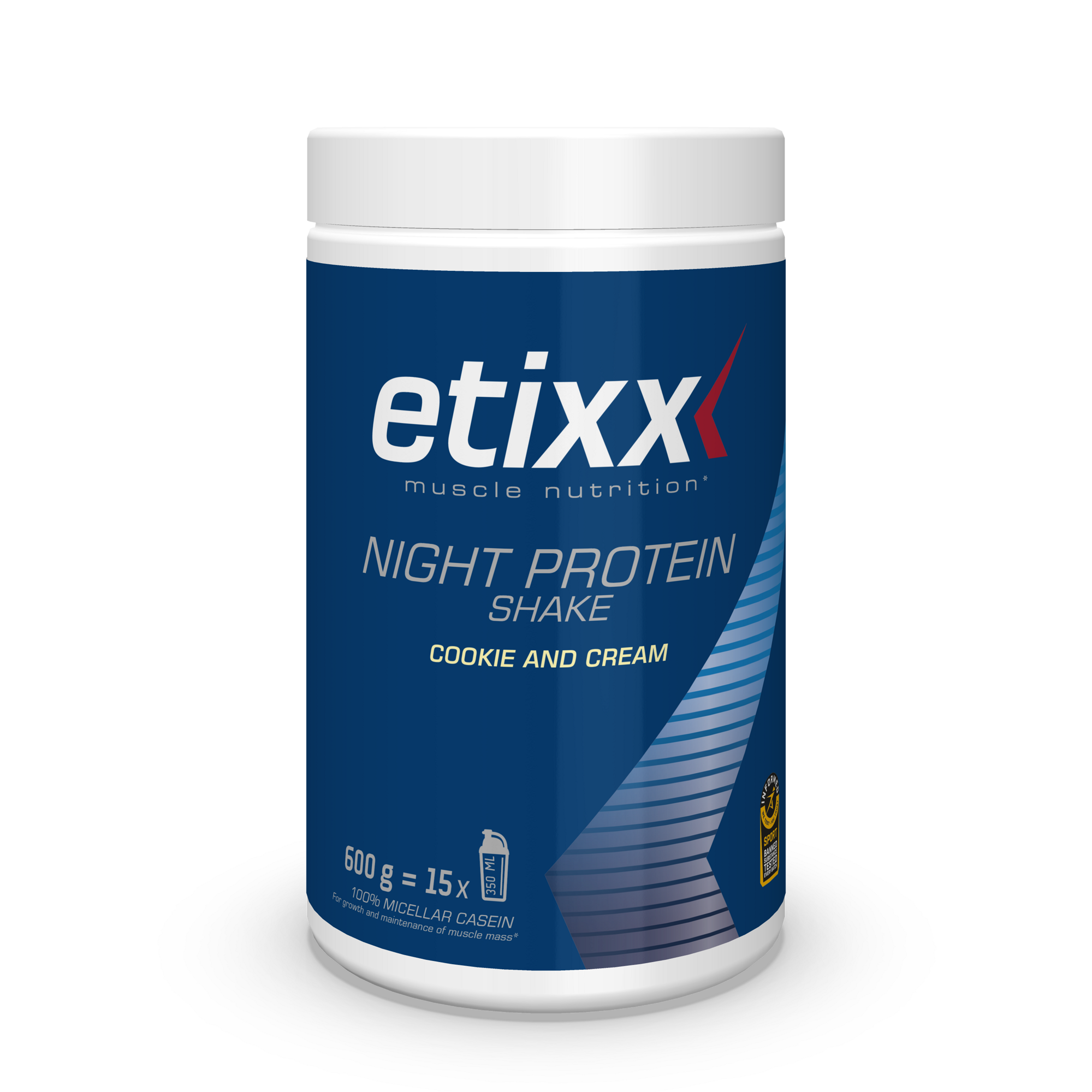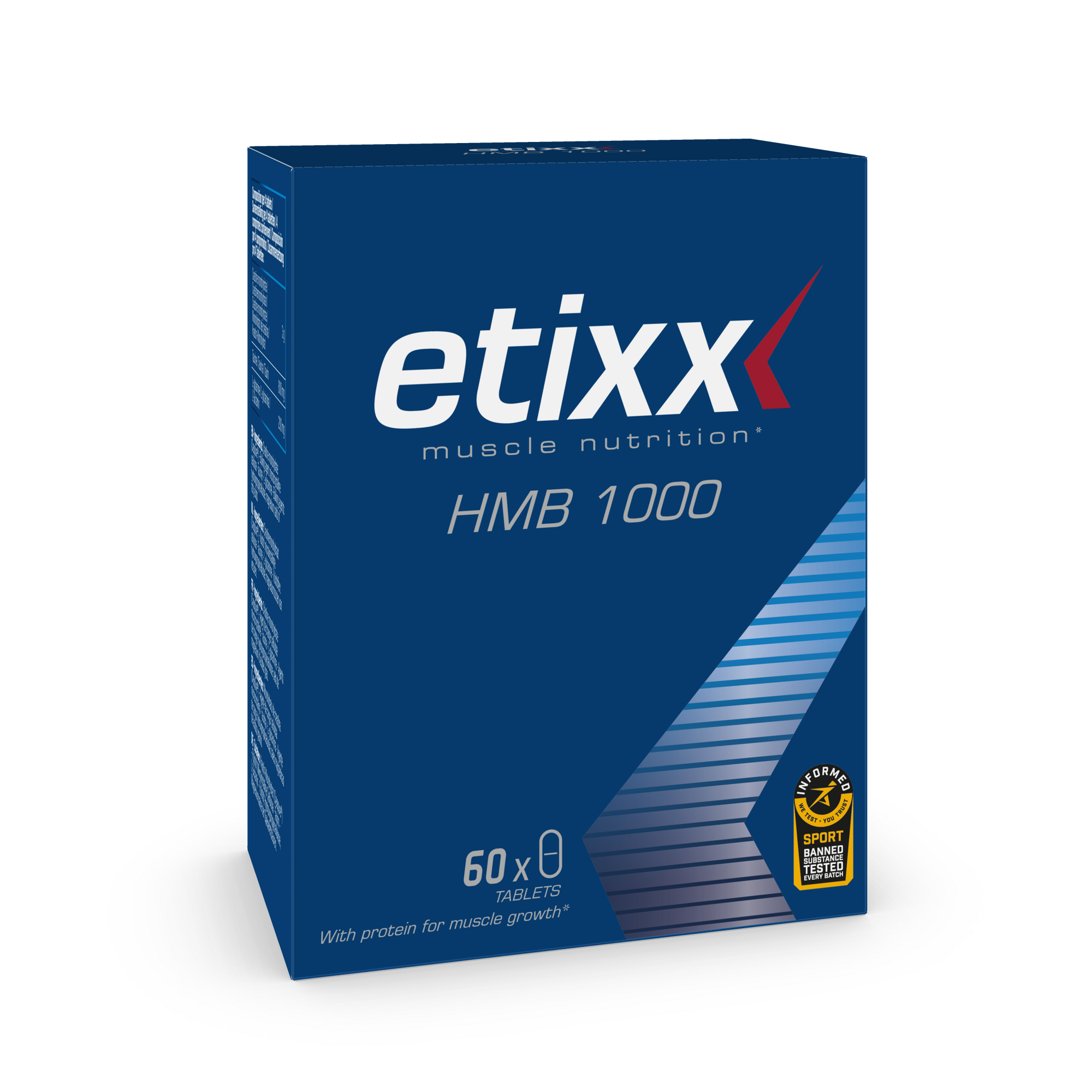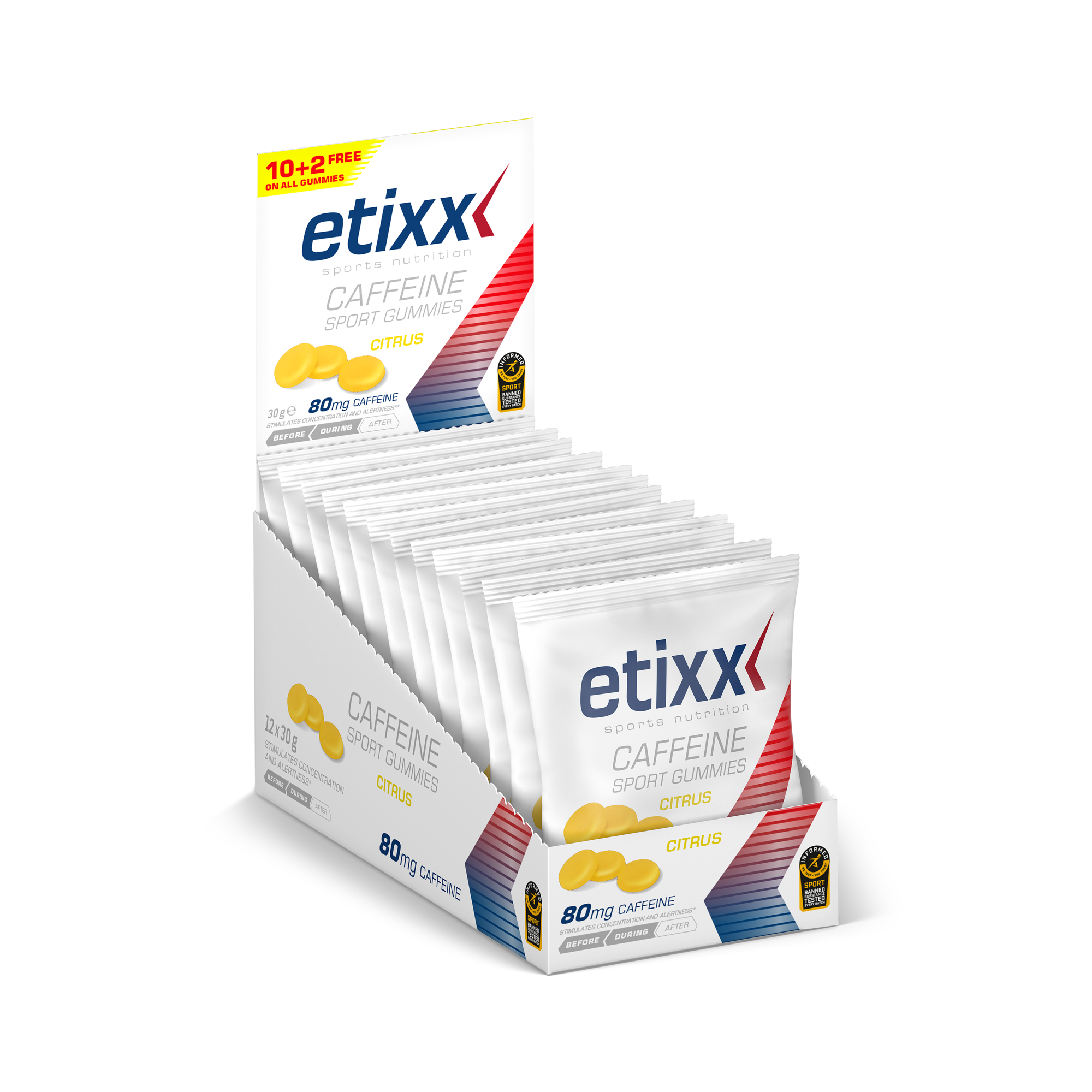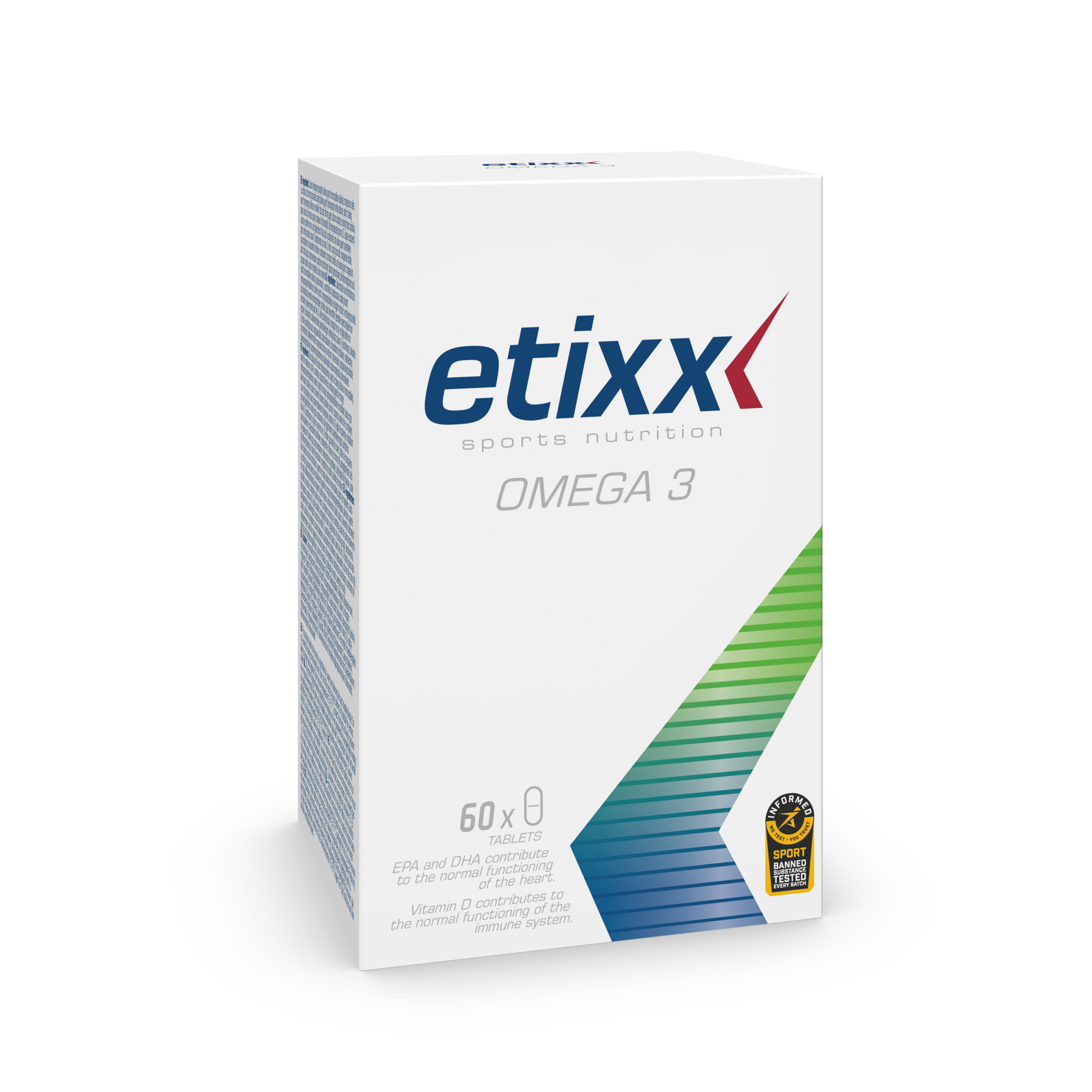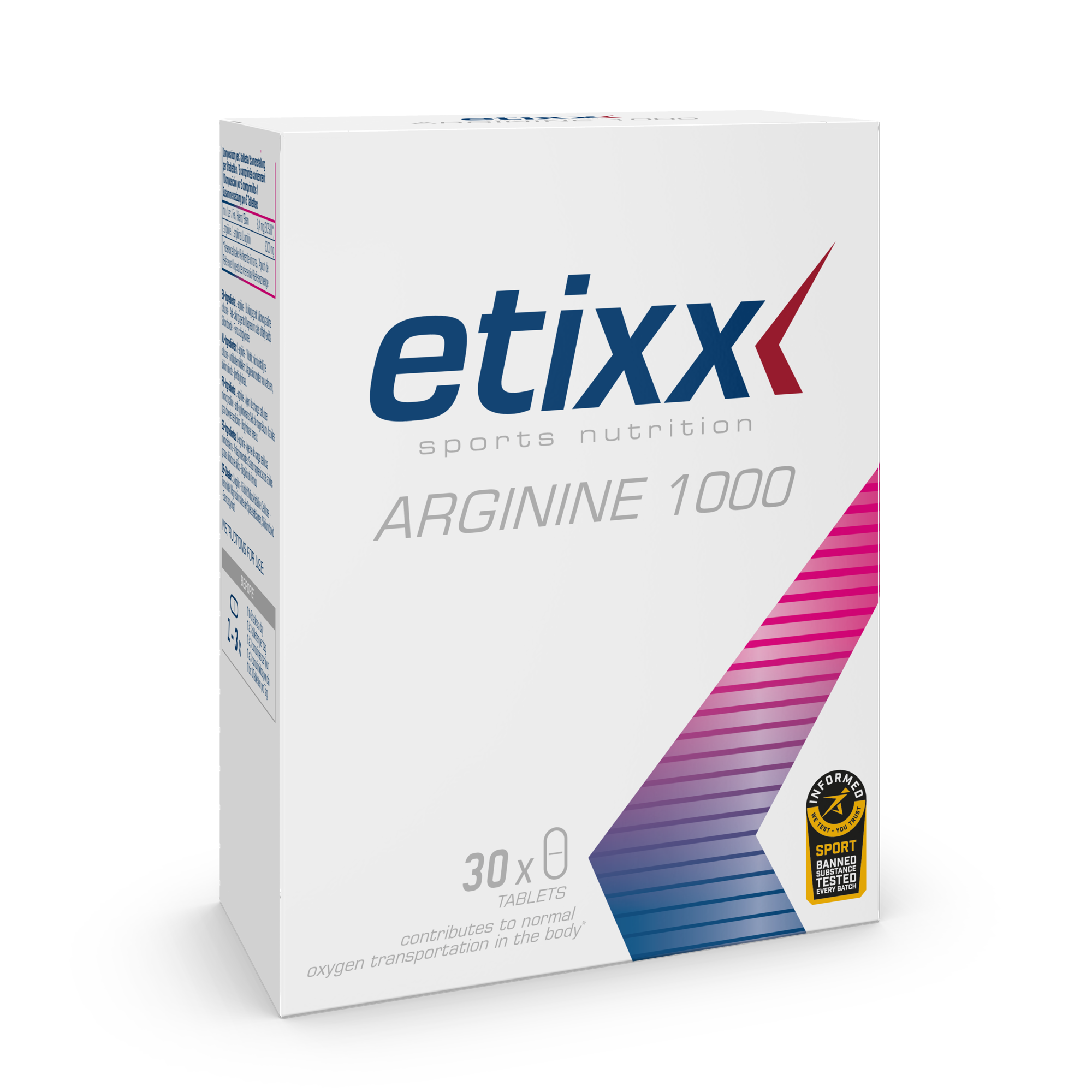Cycle race on the road
In a higher gear with Etixx
Do you spend a lot of time cycling? Would you like to cycle greater distances and go faster??! Cycle racing on the road requires long training sessions over large distances. Whether you are riding with your cycling club on Sunday, or training for the season’s races, you want to clock up plenty of kilometres on your GPS. However, in addition to training, you also need to pay attention to what you eat before, during and after each ride. Without a healthy diet and only relying on training, it is impossible to reach your full potential for a race.
Cycling faster and farther
Whether you’re a road cyclist or a mountain biker, it is crucial that you build up stamina if you want to improve your performance on the bicycle. Professional cyclists spend most of their time on their bikes, and cycle 400 to 1500 km every week. Even serious fans manage around 300 km per week. Keeping to a similar training schedule is physically, mentally and even logistically demanding. You may notice that you often do not have enough time to prepare a meal, especially if you have to combine training with a full time job.
Fuel to keep on going
Sufficient training is the key to success, but a healthy diet is at least as important. After all, it provides your body with the energy it needs to cope with long rides. With every meal, try to consume a proper balance of macronutrients: carbohydrates, protein and healthy fats, and plenty of fruit and vegetables of course. But most of all: do not forget to replenish your reserves while cycling, and consume between 30 and 60 g of carbohydrate per hour (depending on the duration of your training) to avoid total exhaustion!
Tested by top cyclists
As a recreational cyclist, you probably don’t have the luxury of having a personal dietitian and chef to assist you with nutrition. But luckily Etixx can lend you a helping hand. All of our products are tested and approved by top professional athletes before being put on the market. Our team of sports scientists and nutritionists are constantly working with our athletes to find new product developments and new, improved formulas.
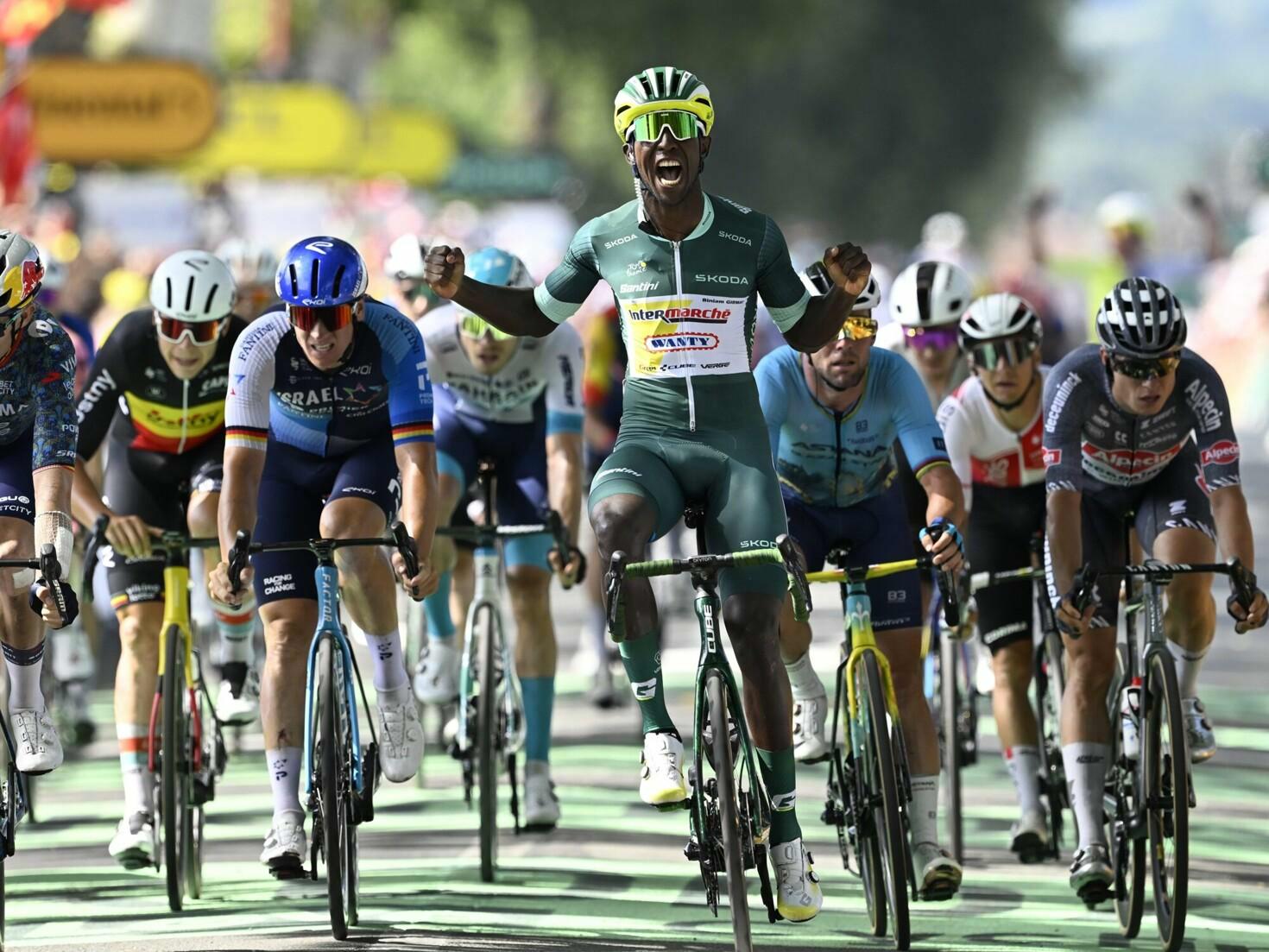
Daily nutrition advice for cyclists
Every athlete has a set of personal needs depending on his or her objectives, condition, experience with sports nutrition and specific problems. Excluding these personal effects, we have found a lot of similarities between the members of our teams and all of the recreational cyclists who have been involved in the testing of our products.
In general, cyclists require more vitamins and minerals because of the exercise they do. Due to overworking and excess fertilisation, our agricultural land has been degraded, so that fruit and vegetables now contain less vitamins and minerals than roughly 50 years ago. This lower level of vitamins and minerals, combined with lower consumption of fruit and vegetables in general, means that cyclists have to pay extra attention to this. For this reason, extra supplements are highly recommended.
Eat and drink before exercise in order to make the best possible gains.
Our level of performance is directly proportional to our loss of moisture. It is important to start your training sessions properly hydrated. Pre-hydration starts the day before exercise, and mainly involves drinking water. The colour of your urine is a good indication of whether you are sufficiently hydrated. Dark yellow urine is a sign that you have not drunk enough. A light yellow colour indicates that you are well hydrated. During the meal before your session (3 hours before) or 10 minutes before the exercise, you can drink a sports drink to hydrate and get some extra carbohydrates.
Eat and drink something during exercise in order to gain as much performance as possible.
The amount of moisture that you will lose during exercise depends on duration, intensity, genetics, body size and various environmental factors such as humidity and temperature. It is therefore not entirely clear how much you should drink while exercising. A very good way to determine how much moisture you need to consume is to use some scales on a day during which you will be training. Weigh yourself before and after training, and multiply the lost weight by 1.5. The outcome is the quantity of fluid that you need to consume in order to compensate for what you lost as sweat.
In order to perform during long periods of exercise, the muscles must have enough glycogen, and that is why it is important to consume carbohydrates while training and replenish these reserves. If no carbohydrates are consumed during long periods of intensive exercise, glycogen in the muscles will become depleted after 90 minutes. The table below shows how much carbohydrate must be consumed, because requirements depend on the duration of the exercise:
| <1h | No additional carbohydrates required |
| 1-2h | 30g per hour |
| 2-3h | 60g per hour |
| >2,5h | Up to 90 g per hour |
You can choose to consume carbohydrates during exercise in liquid, semi-liquid or solid form. The more liquid the food, the faster the carbohydrates will be absorbed during exercise. In stress situations, preference is always given to liquid sources of carbohydrate, because our digestive system does not work optimally when we are under stress.
Eat and drink something after exercise in order to recover as quickly as possible
Proper recovery after training is crucially important, because strangely enough, your body gets stronger and fitter after exercise, not during. In line with the motto “You’re only as good as your last recovery”, it is important to pay attention to what you eat and drink after exercise. This determines how much you will gain from your training. Often, you have to drive or catch a bus, or rush to your next appointment, so you do not immediately supply your body with the building materials it needs to ensure proper recovery. This can cause you to start your next training with fatigue, potentially causing you to enter a negative spiral. This can result in delayed progress, or even injury. What you should do, is provide your body with fuel and the right nutrition as fast as possible.
Advanced plan
For those who are ready to take it a step further and are aiming for challenges that are just within their potential. The products below can help you with this depending on your goals.











